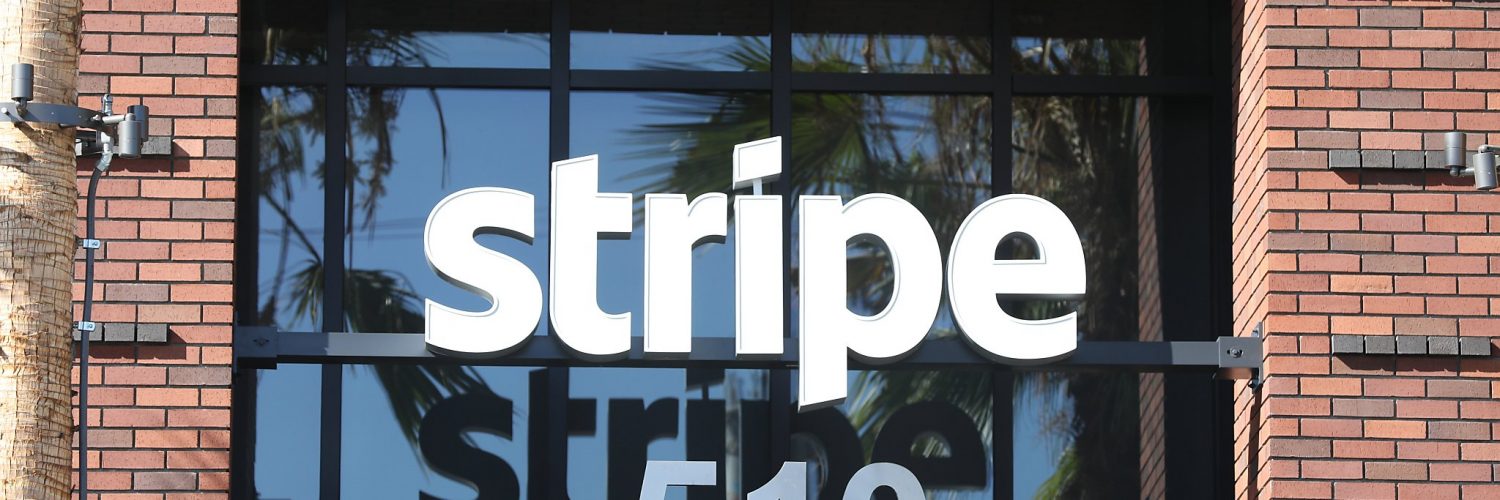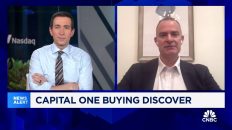John Collison, co-founder and president of Stripe Inc., discusses the digital payment company’s $95 billion valuation and how it performed during the pandemic. He also talks about whether the company will accept Bitcoin payments and why he has no plans for an initial public offering yet. He speaks to Emily Chang on “Bloomberg Technology.”
Bloomberg Technology , Jun 16, 2021
PLEASE ALSO READ
Investors Clamor for a Bigger Piece of Payments Company Stripe
Shopify, Sequoia Capital and others recently bought about $1 billion of shares in fintech Stripe, which could go public late this year or next
Stripe Inc. has yet to go public, but investors are still craving a piece of it.
The company, which processes payments for e-commerce businesses, recently offered investors the chance to acquire sizable stakes in the company from existing shareholders, including current and former Stripe employees, according to people familiar with the transaction. Bids from those investors exceeded $4 billion, some of the people said.
But only about $1 billion of those bids were filled, one of the people said, suggesting that many current Stripe shareholders believe their stock has a long way to climb. Among the largest buyers were mutual-fund giant Capital Group Cos., venture-capital firm Sequoia Capital, e-commerce company Shopify Inc. SHOP +1.86% and buyout firm Silver Lake, some of the people said.
Silicon Valley is awash with investors looking for new places to park their money, partly because low interest rates have made some traditional investments unappealing. Stripe, in particular, has garnered interest because it has been turbocharged by the coronavirus-fueled boom in online shopping. After a fundraising round in March, it became the most valuable private company in Silicon Valley, valued at $95 billion.
The tender offer, which settled last month, was done at a price around where Stripe sold shares in March, some of the people said.
Tender offers have become a popular way for startup investors to amass larger holdings outside of more traditional fundraisings.
SoftBank Group Corp., for example, acquired nearly $7 billion of shares in Uber Technologies Inc. in a 2017 tender offer, when Uber was still a private company.
Many of the large participants in Stripe’s tender offer boosted existing stakes. Shopify, for instance, has now invested more than $350 million in Stripe over a number of transactions, a person close to Shopify said. Shopify is one of Stripe’s largest payment-processing customers, and starting this year Shopify rolled out bank accounts and debit cards to its merchants through a Stripe program.
The tender offer should relieve some pressure that the company faced from employees and investors to go public sooner rather than later. Stripe has been laying the groundwork for an initial public offering that it could pursue in late 2021 or early 2022, The Wall Street Journal previously reported.
Stock options at many startups, including Stripe, often expire 10 years after they are granted. Employees who joined the firm shortly after its founding, which was around 2010, have worried that some of their options would expire before an IPO.
Stripe has discouraged employees from selling shares in private transactions that it didn’t arrange, while the ones it did arrange mostly restricted former employees from participating and limited how much current employees could sell, people familiar with the company said.
Those restrictions were lifted for the new tender offer, the people said. But that doesn’t mean every employee was able to take part. A few years ago, Stripe switched its stock-based compensation plans to restricted stock units that don’t vest until a public listing, the people said. Only stock that has vested could be tendered in the offer, so more recent employees were largely left out.











